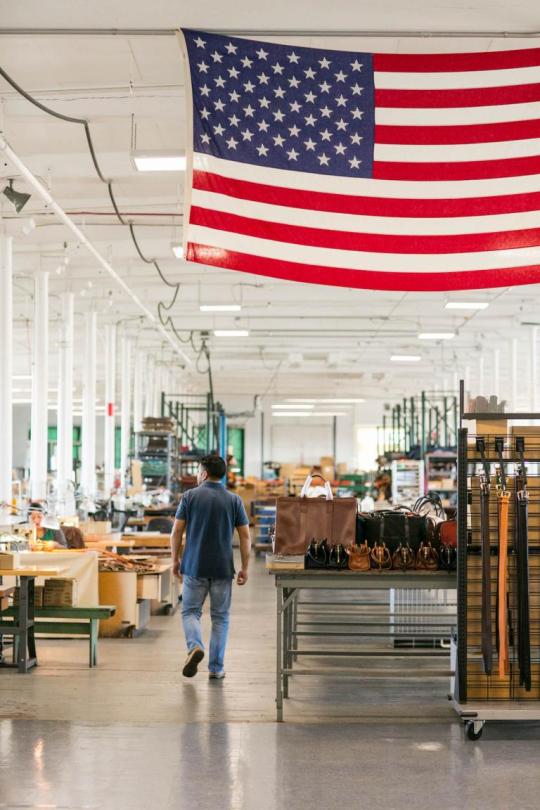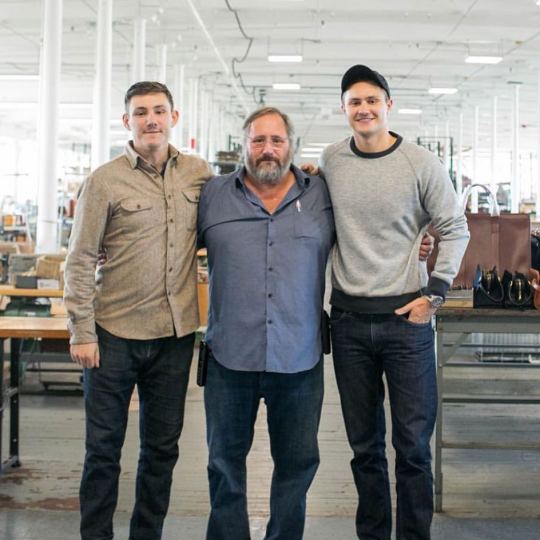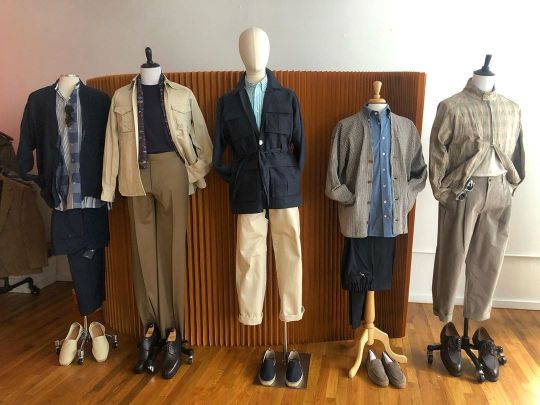
Last week, as I was reading Sendhil Mullainathan’s article in The New York Times about the importance of small businesses, I felt like I was reading my own story. Mullainathan is an Asian American who grew up in California, where his mother owned and operated a small video store. “She survived a major economic recession, two riots that rumbled past her window, and even the opening of a Blockbuster nearby,” he writes. Eventually, however, her business succumbed to the changing times. When her customers moved on, she felt she was ready to let go too. The difference, as Mullainathan notes, is that there are hundreds of thousands of small businesses today under threat, but were flourishing just three weeks ago. Their owners are not yet ready to move on. Their customers want those businesses to continue. And more importantly, their employees want to work.
Mullainathan’s article made me think of how many people in the United States have experience either owning a small business or working for one. On the block where my parents ran their video store, there were other Vietnamese families just like us. I remember playing in the back alley with kids whose parents owned the neighboring grocery store, bakery, dentist office, chiropractic office, and phở restaurant (why nearly every Vietnamese commercial block has this same exact mix of businesses, I have no idea). “I take the plight of small-business people personally,” writes Mullainathan. “Perhaps you do, too.”
Over the weekend, I reached out to some people behind small menswear operations to see how they’re doing. These are the people behind bespoke tailoring workshops, ready-to-wear boutiques, and even factories. I’ve been worried sick about what the crisis will do to small businesses. Instead of wondering what challenges these people face, and how others can support them, I asked business owners directly. Notably, since this crisis is moving so quickly, some details have since changed (Kiya at Self Edge, for example, noted that the quarantine timeline was looking to be months, which is now uncertain). But the contours of these concerns remain largely the same. Here’s how seven small business owners are thinking about the crisis.

IAN CLEGG OF FRANK CLEGG LEATHERWORKS
What are you worried about? What are the challenges for your business?
Our number one worry right now is for our employees. The state of Massachusetts has shut down all non-essential businesses, so our factory is closed. My brother and I will continue shipping all in-stock orders. Our company has never needed to lay anyone off before, so this is disappointing. I am hoping all our employees will continue to stay healthy and bear no financial burden that will change anyone’s life. The challenges that the business will be facing will be affected by the length of the closure. We were into our 50th year and our company was on track to have our best year in history. During the last month, we have seen supplies disrupted with our European partners. Once things settle down, we will go forward with getting our crew back together and doing everything we can to normalize the shop. Fortunately, we do not have any current debt problems, so that that’s good. Hopefully, our suppliers will be able to fulfill all of our backorder requirements. Not knowing what the environment will look like when this is over, I am sure we will need to make adjustments to our plans. How the government handles the next couple of months is important. Our family’s business is on the line. We will do everything in our power to make sure our team and company will be open for business once this virus passes.
What can people do to support small businesses such as yours?
In a situation like this, everything slows down. Sales are affected, which makes it more challenging to continue. Since every small business has fixed expenses and employee expenses, it is important for customers to support them whenever they can. I realize that this may not be a high priority, but if a purchase is even on the list, then this is the time to help. Small companies think differently than large companies, We value every customer, and it is a more personable experience. In times like this, the government always favors large companies, so maybe fans of small companies should do whatever they can to help keep the movement alive.
Overall, it’s very difficult to plan for the future. My team has three contingency plans in place to weather this storm. All with the common goal to stay alive, and come out ready to work our asses off. There is a reason why my father has been in business for 50 years, and I believe he has advised my brother and me extremely well. We take each day as a learning experience. I look forward to what the future may hold and can’t wait to celebrate our 100th year in business!

GREG LELLOUCHE OF NO MAN WALKS ALONE
What are you worried about? What are the challenges for your business?
What I’m most worried about, beyond the loss of human lives, is the economic impact on both the makers and consumers. We work with makers that have been disappearing generation after generation anyway. I feel that shops such as No Man Walks Alone are trying to conserve those crafts, while the rest of the world accepts they will buy clothes made in near-slavery conditions at the lowest possible cost and highest possible margin for a handful of companies. A shock like this deeply hampers that conservation effort. It’s already a razor-thin margin business, so I wonder how many of our artisans and small brands have enough cash on hand to survive months of closure. I talked to one of them who said that they’re getting calls from clients to cancel FW20 orders. Who knows when they can even make and deliver FW20?
I also worry about consumers who have lost their job or are employed at a company with shaky financial stability. They will likely pull back on their discretionary spending. Of course, that’s understandable, but it’s a vicious cycle. Is every clothing purchase now going to be a $5.99 shirt and $9.99 pants? Will this crisis exacerbate the primary problem that the fashion industry was already facing?
As for the more affluent customer, seeing your 401k or portfolio down 40% is not something that will give you the desire to splurge on a new jacket or a pair of shoes.

Unfortunately, I don’t think small businesses that are good at serving customers can have the cost structure necessary to do well in this crisis. Good customer service, good product selection and merchandising, good shipping/returns operations; all this requires a proper infrastructure and human organization, which have costs. People think of online stores as something virtual or asset-light – sure, those drop-shipping Shopify stores that do nothing but host links are that. But stores that actually provide service, such as No Man Walks Alone, need people and infrastructure. So far, we’ve kept all employees on the payroll, and everyone is getting paid as usual, even though the office is closed.
What can people do to support small businesses such as yours?
We launched an initiative to help Meals On Wheels, an organization that helps senior citizens get the care and food they need at home. It’s important to us that we support their efforts. Our senior citizens are at the most risk right now, since they’re often separated from their families due to social distancing measures and travel bans. We are giving 20% of our gross profit to Meals On Wheels until further notice. The donations are sent every week (I sent them about $3,000 yesterday for our first week).
We’re also offering 20% off anything in the store (people should be jumping on suits and sport coats at these prices!) to help our customers help us survive the crisis and raise money for MoW. Many of us want to help, but don’t always know how or where. This is a great way to help a small retailer keep the lights on, as well as those that are most in need of care. The checkout code is STAYSAFE.
I know it’s hard to spend money these days and I don’t expect everyone to spend thousands of dollars with this initiative. But even a smaller purchase, just a shirt or a new pair of espadrilles for the summer, will absolutely help. The strength is in numbers. If we can get more people to “pitch-in,” it will be a win for all. I say “pitch-in,” but in reality, you get a great garment at a lower price in return, so it’s a painless and personally rewarding way to help.

MARK CHO OF THE ARMOURY
What are you worried about? What are the challenges for your business?
My immediate concerns would be rent and payroll. With our landlords, we worked out a manageable payment plan for now. Our team is very important to us and we are doing what we can to keep the team intact and covered by health insurance. We were very excited to have just opened a new store at the beginning of March. It is a little scary to have all these new expenses come online just as we entered into this Covid era. With our measures, we have a buffer to stay in business but it is not unlimited.
In the medium term, I am concerned about our suppliers. The Armoury and its suppliers form a small ecosystem. For some of them, such as our small single or small team artisans, we are a very large chunk of their income. Interestingly, our trunk show model of doing business is especially good for them at the moment. They already took their orders months ago at their pre-Covid trunk shows, so they are busy working on those. However, we have had to cancel all upcoming trunk shows until COVID-19 goes into remission. Depending on how soon we can start again, they will be affected as well.
Sales have plummeted. The Armoury New York’s sales overall are about 70% down compared to last March. We receive some income from our online store, but our bread-and-butter has always been a healthy in-store business, which is simply not possible when the stores are closed and our team is at home.
What can people do to support small businesses such as yours?
For fans of The Armoury who would like to offer some support, this is a great time to ask us questions. If you are interested in knowing more about our products, be it a specific item or collections in general, feel free to e-mail us at nyc@thearmoury.com. We have always enjoyed introducing what we do to people and this is a great time for us to elaborate. If you like the experience and appreciate the product, purchase through the online store, or we can arrange for an invoice over e-mail, too. The easiest thing to buy, of course, are gift cards, but we have a ton of interesting things for spring/summer that are accessible online as well.

PATRIK LÖF OF SKOAKTIEBOLAGET
What are you worried about? What are the challenges for your business?
In Sweden, the government has asked people to work from home and avoid any unnecessary social interaction. So the first challenge is, of course, handling the fact that brick-and-mortar sales drop to zero. As for online purchases, being in the luxury segment, it might not be the first place people look for their shopping right now; this has decreased as well. So you have all the challenges associated with revenues dropping for a very uncertain amount of time. Many retailers within menswear are fully stocked and have just launched their spring/summer collections, so this will most likely cause cash flow issues for almost any business in the industry.
Then we have future challenges as the factories are staring to put production on hold. In both Italy and Spain, many factories have decreased or paused production. It’s not only a matter of keeping the workforce home for health reasons, but component manufacturers and tanneries will likely have supply issues as well, causing production disruptions. When the dust has settled, and we are through this COVID-19 crisis, everyone will most likely face challenges and delays with the fall/winter 2020 season.
What can people do to support small businesses such as yours?
First of all, follow the recommendations by your government so we can help limit the spread of COVID-19. Please, for the sake of our senior citizens! The more we limit this spread, the safer all our communities will be.
And keep supporting your favorite stores online, it’s the only way to keep the menswear community alive. Otherwise, many retailers will unfortunately not be here after we’ve seen the end of this crisis.

MATTHEW DEBOISE OF STEED TAILORS
What are you worried about? What are the challenges for your business?
At the moment, we’ve suspended our trips to the US until further notice. We were due back in April and then again in June, but that’s no longer possible with the coronavirus. The US also added the UK to its travel ban. The restriction is supposed to last thirty days, but I suspect it’ll be extended. It’s tough for us because 85% of our customer base is the United States. We were also growing our business in China, but now it’s uncertain when we can go back. On this last trip to the US, they asked us at the border if we’ve recently been to China. If it comes down to choosing China and the US markets, we have to stay with the US since that’s where most of our customers reside.
As a whole, the bigger firms on Savile Row have to pay a lot in rent, but they’re also often backed by people with deep pockets. We’re a small and independent firm, but the good news is that we have very little overhead. Our space on Savile Row is shared with Chittleborough & Morgan, and we only pay when we have to use it, which is for appointments. We have a couple of fixed costs: our workshop in Carlisle, where my father is working right now. We also have a couple of company vehicles.
But our other costs are tied to orders. When someone places an order, we have to put down some money to buy cloth, and then pay trouser and coat makers for their work. The coat makers work from home and we’ve been doing curbside deliveries for them, so everyone stays safe. If a customer is doing a CMT order, where they supply their own cloth, that’s even better since that means we have less outlay. With a small business, you always have to watch your cash flow. So then it’s just a matter of paying the tailors for their work, but those costs are partly covered by customers’ deposits. I feel fortunate our company has that kind of flexibility right now.
What can people do to support small businesses such as yours?
At the moment, even without additional trips, we have enough business to get us through to October. When the pound fell against the dollar shortly ago, we had a few customers pay their balances, as well as put down new deposits. For longtime customers, we can make garments straight-to-finish and conduct fittings via videoconferencing. We’ve successfully done this in the past for other customers. Once we have your pattern nailed down, adjustments are often about small things, such as cleaning up an armhole or narrowing the shoulders. So longstanding customers can still place orders, so long as they’re OK with something made straight to finish.
I suspect, however, that things will get worse before they get better. Some medical experts say that it may take up to 18 months before a vaccine is developed, tested, and approved. We may go through cycles of travel restrictions and lockdowns – a period where there’s an enforced quarantine, and then it’s lifted before it’s imposed again. At the moment, I feel good about our future, but if things continue to look bad in October, I will begin to worry.

KIYA BABZANI OF SELF EDGE
What are you worried about? What are the challenges for your business?
We’re not only worried about our business, but small businesses around the world as a whole. The (nearly) worldwide shutdown will change the landscape of all economies and, more importantly, the viability of running a small to medium-sized business in major metropolitan cities. At Self Edge, we were initially planning on a two-week shutdown at four of our five locations, but now we’ve closed the store in Mexico as well. With a two-week shutdown being financially painful, we knew what had to be done, and we shut the stores down and made sure all staff is paid their regular wages throughout this period.
The issue now is that experts (and the government) are not talking about these shutdowns in “weeks” but more in “months.” There is no way for a closed business to survive for months while having to pay its staff, rent, insurance, etc. We’ve been very fortunate to have a stable business for 14 years, which I credit to how we run things on the back end, along with our dedicated customer base. Even with that, however, I’m genuinely not sure where we’ll be in two or three months. It truly hurts to think about all the businesses that were on the line for so long, and this might be the thing that puts them under. Nothing will be the same once we make it out of this, at least not for a very long time.
What can people do to support small businesses such as yours?
I believe supporting small businesses has never been as important as it is today. If a business is still selling online and you want them to exist after this pandemic is over, then you need to spend what you can (and within your means) with them now. Now is a good time to think about why small independent businesses exist and why they’re so important in our everyday lives. Erase them from the world, and we’ll have a world that most people I know wouldn’t want to live in. Imagine a world where every penny you spend goes to a large corporation. It’s not cute.

JEREMY SMITH OF STANDARD AND STRANGE
What are you worried about? What are the challenges for your business?
My number one concern is that we can make payroll month over month to retain our staff. Our short term challenges are, of course, primarily about revenue. We need to keep revenue moving to pay our staff, order more inventory, and so on.
In terms of cost structures, we’re a traditional buy-sell retailer, so our goods are coming in at a higher cost to us than a DTC or fully vertical retailer, especially ones that source from countries with less-stringent working conditions. We obviously have rent to pay as well. We run lean, so we’re not very encumbered with technology or ad costs. However, many DTC companies have massive payrolls to support their digital platforms, and have their own “rent” problem in terms of buying ads. You can’t turn that tap off without cratering sales for most of those companies.
The long-term challenge is devaluation across the industry. Excluding brands where we have an exclusive, almost every brand right now is being discounted. For the first time ever, we’ve had to discount new deliveries. This means we’re losing the capital that we’ll need in the future. As shops close, brands will lose sales, and the remaining shops will have trouble absorbing the excess business. Most of our brands need to meet a certain minimum per style – let’s say 150 pieces of a flannel – and have enough outlets to move that many units. We can take 20 to 30 of a good style, but not 150.
What can people do to support small businesses such as yours?
Our fans can help us by making smart decisions about what they buy, and who they buy it from. Even if it’s not us, every dollar that goes to an independent is a dollar that gets spent in local communities. To be clear, any dollar that gets spent has a local impact, but a dollar to us or another independent goes directly to work rather than being hoarded by a billionaire or their shareholders.
The other thing our fans can do, at least in the United States, is push for rent abatement, mortgage abatement, student loan freezes, and universal healthcare. Most independent retailers and their teams would be way better off if most of our income wasn’t being eaten up by rent (both commercial and residential), and if we had reliable, free healthcare. It’ll suck for the markets if housing prices collapse, but when was the last time the market cared about you personally? The stock market doesn’t want you housed, fed, or cared for. It just wants to absorb every penny you make.
(Big thanks to Ian, Greg, Mark, Patrik, Matthew, Kiya, and Jeremy for taking the time to talk with me. Readers can head over to those shops by clicking the links above. If you decide to spend your money somewhere in the near future, I encourage you to do it thoughtfully, mindfully, and hopefully at places that add value to your life. If you’re not able to spend money at the moment, consider sharing something you love about a product or store on social media.)
